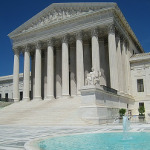Hinshaw Adds Products Liability Attorney to Chicago Office
The U.S. law firm of Hinshaw & Culbertson LLP announced that Jordan D. Shea has joined the firm as a partner in the Product Liability practice in Chicago.
In a release, the firm said Shea has experience in successfully representing domestic and international companies across a wide range of industries in product liability, labor and employment, commercial and toxic tort matters in courts across the Midwest.
Previously a partner with Williams Montgomery & John, Shea represents companies in high-stakes litigation across a range of industry sectors, including aviation, lawn and farm equipment, power tools and consumer household goods. He has employment litigation experience as well and has also successfully defended manufacturers in toxic tort cases. He is a certified Cook County arbitrator and regularly conducts arbitrations.
He served as a member of the legal team that secured one of the largest ever False Claims Act settlements in a case in which the government did not intervene.
A native of Chicago, Shea received his J.D., magna cum laude, from Loyola University Chicago School of Law and his B.A. from the University of Wisconsin Madison.



